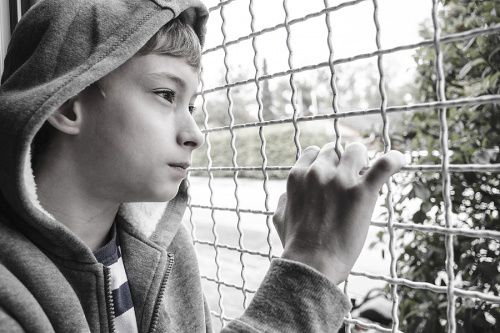“I want to go back home.” This is the most common phrase uttered by internally displaced persons in Ukraine, says Msgr. Giampietro Dal Toso, Secretary of the Pontifical Council Cor Unum.
Msgr. Dal Toso visited Ukraine Apr. 24-27, following the extraordinary collection for the country launched by Pope Francis. As the Pontifical Council Cor Unum has been entrusted by the Pope to deliver the money, Msgr. Dal Toso traveled to Ukraine to get acquainted with the situation.
During his the days in Kiev, Msgr. Dal Toso met with the top officials of the Greek Catholic and Latin Church in Ukraine, but also with the representatives of other Christian denominations, including the Russian Patriarchate. He also had meetings with officials of the United Nations and was able to visit a place where internal displaced people are gathered.
He recounted to CNA that “there is an incredible number of people who fled their homes: 3 million people are living in disadvantaged conditions, while there are 1.5 million internally displaced persons.”
Those who are internally displaced are mostly settled in the areas surrounding the self-proclaimed republics of Donetsk and Lugansk, but also in Kiev, the capital.
In Kiev, Msgr. Dal Toso visited a center that hosts some 150 refugees.
“I was mostly shocked by the fact that these people had a regular life before: they are middle class people, they had a house, a job and a dignified life. Suddenly, they had to leave everything,” he said.
In his view, “it is terrible that there is no future for most of them. None of them know how long they will be refugees. There are sometimes four people in one room, and they know nothing about what is going to be of them tomorrow.”
Msgr. Dal Toso added that “there are places where electricity is granted only for two hours per day, and there is no gas heating.”
“I asked some of them: what is your hope? They answered me: we hope to go back home.”
According to the monsignor, “there is a humanitarian side in the Ukraine crisis. This side is not very much considered, but it is the most painful one.”
The major success of the Pope’s initiative, he said, is the fact that “now the crisis in Ukraine is in the spotlight again. The Pope succeeded in making the public aware of the fact that there is a conflict at the heart of Europe, which has produced a number of internally displaced persons that is the same or even more than the number of refugees coming from the Middle East to Europe.”
He added, “This is the way Pope Francis has shed light on a dramatic humanitarian crisis.”
The aid sent by the Church through the extraordinary collection will not solve the problems in Ukraine, Msgr. Dal Toso acknowledged. “But it is however important…this way, the Church can reach out to so many people in need.” “The Pope’s initiative also showed what the Church wants,” he said. “The Church has no interest in power. It has interest in showing God’s freely-given love. In addition, this is also an ecumenical initiative, which implies a cooperation among Catholic Churches and other Christian denominations, like the Ukrainian Orthodox Church and also the Moscow Patriarchate.”
The secretary of the Pontifical Council said that “a technical committee will be established. This committee will be based in Ukraine, and will manage and deliver the aid.”
The money collected from around the globe will be delivered from the parishes to the bishops, and from the parishes to the Holy See, and this means that the official amount of money collected will not be known for three months.
Msgr. Dal Toso wanted to specify that “although the channels through which we will deliver aid will be Catholic associations and labels, every person in need will benefit from the aid, regardless of their religious, cultural or ethnic background.”
Photo credit: Alex Tor via www.shutterstock.com.

